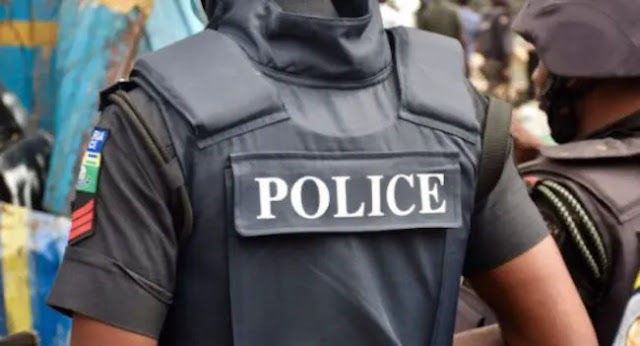As Nigeria approaches April 7, the country faces mounting political tension, fueled by an anticipated nationwide protest led by the Take-It-Back (TIB) movement and several civil society organizations. The protest, which promises to be one of the most significant demonstrations in recent months, aims to spotlight grievances regarding governance and civil liberties under President Bola Tinubu’s administration.
In preparation for the protest, which will take place across various parts of Lagos and other major cities, the Lagos State Police Command has dramatically ramped up its security measures, citing concerns over potential unrest. This protest, scheduled to begin on Monday, has attracted considerable attention from both local and international observers due to its contentious demands and the political climate in the country.
According to a circular from the Deputy Commissioner of Police, Tijani O. Fatai, the police force has been put on high alert after intelligence reports indicated that "subversive groups" might attempt to hijack the peaceful protest and incite violence or unrest. The authorities have expressed concerns that elements within the protest may not be solely focused on the stated grievances but could exploit the situation for more radical purposes, potentially destabilizing the already fragile political environment.
The protest’s core demands are led by Juwon Sanyaolu, the National Coordinator for TIB, who has emphasized that this demonstration is about more than just criticizing leadership. The movement is calling for the repeal of the Cybercrime Act, a piece of legislation that has been criticized for allegedly stifling free speech and suppressing online activism. Additionally, the protestors are demanding the lifting of what they call an “emergency rule” imposed in Rivers State, which has resulted in the suspension of several key state institutions, including the House of Assembly and the Executive Council.
In his statement, Sanyaolu underscored the broader concerns regarding the erosion of democratic principles, which, he argued, have been exacerbated under President Tinubu’s administration. He specifically pointed to the suspension of democratic institutions in Rivers State, claiming that these actions undermine the foundation of Nigeria’s political system.
“We are not just protesting failed leadership; we are calling for justice, transparency, and the restoration of the constitutional rights that every Nigerian is entitled to,” Sanyaolu remarked. The protestors’ demands echo broader concerns about the state of democracy in Nigeria and the growing power of the executive branch, which critics argue has overstepped its bounds in recent months.
In response to the growing unrest, the Lagos State Police Command has launched a significant security operation across the metropolis. The operation will see a multi-agency approach, bringing together the Rapid Response Squad, the Counter Terrorism Unit, the Special Protection Unit, and various Police Mobile Force (PMF) units. The police have designated specific areas in Lagos as high-risk zones, including known protest hotspots such as Gani Fawehinmi Park, Ojuelegba, Ikorodu Roundabout, Lekki Toll-Gate, and the Ikeja Underbridge.
These areas, which are often at the heart of any large-scale demonstrations in Lagos, will be under close monitoring, with the police prepared to take immediate action if the situation escalates. Additionally, sensitive locations such as government buildings, media houses, major markets, and food distribution hubs are also being closely observed to prevent any potential violence or property damage during the protest.
“While we respect the right to peaceful protest, it is our duty to maintain law and order and to ensure that no individual or group hijacks the demonstrations for ulterior motives,” Deputy Commissioner Fatai stated. His comments highlight the delicate balance the police face between respecting the rights of protesters and preventing the chaos that has often followed such mass movements in the past.
This heightened security, however, reflects the growing sense of tension in the country. It highlights not only the discontent with the current government but also the broader issue of governance in Nigeria, where many citizens feel disconnected from their leaders. With issues such as corruption, mismanagement, and the erosion of democratic rights at the forefront of national discourse, the protest scheduled for April 7 is shaping up to be a significant moment in Nigeria’s ongoing struggle for justice and accountability.
As the day of the protest approaches, all eyes will be on Lagos and the nation’s capital, Abuja, to see how the government responds to the growing calls for transparency, justice, and the restoration of democratic integrity.













![Content Creator Angelica Kelechi Speaks Out on Alleged Sexual Assault at Khloe Abiri’s Spa [VIDEO]](https://blogger.googleusercontent.com/img/b/R29vZ2xl/AVvXsEgQStip4cn2DAOvQ2hNFU30OAFWoxfQIDOnStd0uVgwwxKrFAQYYvtFni6QV04OGP8dyKk5TCAhXM5es9linl1ClhjPzaazz2tTt0LmJ5lFVe5202o2McF9QROT1v2hEyNTdY-M1KRuLTY6OqqysKNfcsY5bCtwCIP8wEQ4AXcfQfTaXWWZiixqf82NDH5a/w72-h72-p-k-no-nu/abiri-khloe123.jpg)






0 Comments
Hey there! We love hearing from you. Feel free to share your thoughts, ask questions, or add to the conversation. Just keep it respectful, relevant, and free from spam. Let’s keep this space welcoming for everyone. Thanks for being part of the discussion! 😊